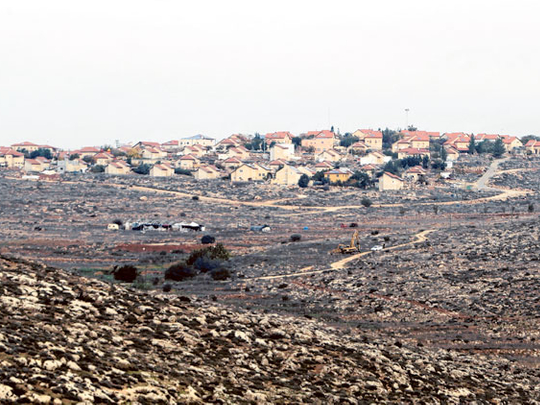
Boston: The unusually strong European rebuke of Israel’s plans to tighten its grip on land sought for a Palestinian state marks at least a 30-year low point in relations, say Israeli foreign policy scholars. While the nature of Europe’s complaint is not new, the tone reflects both heightened urgency about salvaging the two-state solution, and accumulated impatience with a government seen as diplomatically tone deaf.
“What we now witness is not an eruption of emotions or a political eruption, it is a result of years of an evolution that has been taking place in which Israel loses gradually but steadily the sympathy of public opinion in Europe,” says Avi Primor, former Israeli ambassador to both Germany and the European Union.
While he and others see a potential for a serious deterioration of relations, Israeli Prime Minister Benjamin Netanyahu’s government appears undeterred by Europe’s response so far to plans to expand West Bank and Occupied East Jerusalem colonies. Despite Europe being Israel’s largest trading partner – or perhaps because of it – Israel is largely unconcerned about the diplomatic flap inflicting any permanent damage.
“We have very strong relations with European countries and I’m sure we’ll overcome this in the near future,” says Danny Danon, deputy speaker of the Knesset and a member of Netanyahu’s Likud party. “I think we will have to deal with that [Europe’s] response, but we will continue to build in our capital in Occupied Jerusalem, and in colony blocs in Judea and Samaria,” he says, using the biblical names for the West Bank.
Member of the Israeli Foreign Affairs and Defense Committee, Nachmann Shai, says the Jewish state’s retaliatory colony moves are detrimental to its global standing and reflect an about-face, after Netanyahu so carefully worked to get international opinion on Israel’s side during the eight-day Gaza campaign that ended November 21.
“We lost this credit overnight because we didn’t know how to react to the Palestinian request at the UN,” says Shai, who has represented Israel’s interests to the world in many different positions over the course of his career, including as spokesman for the Israel Defence Forces.
“The fact that we reacted by challenging the world community by doing something that we know for sure will make them angry, it’s like shooting ourselves in the leg, it’s against our interests.” More recently, the EU has reportedly been mulling a plan to blacklist violent Israeli settlers from entering its member countries. And there has been a move to ban or at least label products made in Israeli colonies.
Professor Pardo says the kind of “megaphone diplomacy” seen this week signals that Europe, which prefers dialogue over punitive measures like sanctions, feels it cannot get through to the Israeli administration and is trying to send a message not only to the government but also Israel’s voters ahead of January 22 elections.
“We see a much more assertive EU, that is sending a message to the Israeli government that we are not willing to play the games by your rules,” he says. “We have a completely different set of rules. It’s either you follow us, or for the first time we will react in a different way than you’re used to.”
The best, and perhaps only, way to get EU-Israel relations back on track and avoid further deterioration, such as the EU refusing to upgrade trade and technological agreements with Israel that would otherwise become quickly outdated, is to engage in meaningful negotiations with Palestinians, says Primor.
Whether those negotiations lead to real peace isn’t as important, he says, pointing to the effect of signing the 1993 Oslo Accords.
“Immediately we became the blue-eyed boy of the EU and we could get all the advantages that we wanted, all the modifications of the agreements that we wanted,” he says. “This could happen again.”












